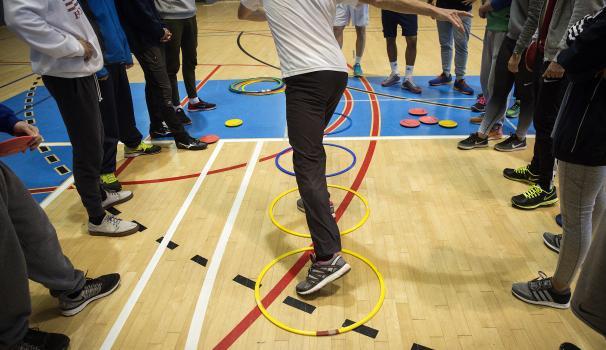Early childhood and primary school teacher
Teachers trained at Blanquerna-URL have a solid cultural and professional background that enables them to promote innovative pedagogical approaches and practices within the framework of an open school.
Enrolment open

8 a.m. to 2 p.m. / 5:30 p.m. to 9:30 p.m.
Blanquerna-URL - Carrer del Císter, 34. 08022 Barcelona
School of Psychology, Education and Sport Science
These studies are aimed at people with a vocation to be teachers who are socially committed, inclusive, multilingual and open to the world, transformative and with excellent socio-digital competence.
Schools need Blanquerna teachers who can teach from 0 to 12 years old. Blanquerna responds with this unique double degree in which you will acquire the professional skills needed to work with children from nursery school to the end of primary education.
Teachers trained at Blanquerna-URL have a solid cultural and professional background that enables them to promote innovative pedagogical approaches and practices within the framework of an open school.
Head, technician and teacher in different services, foundations and educational institutions.
A guaranteed future career
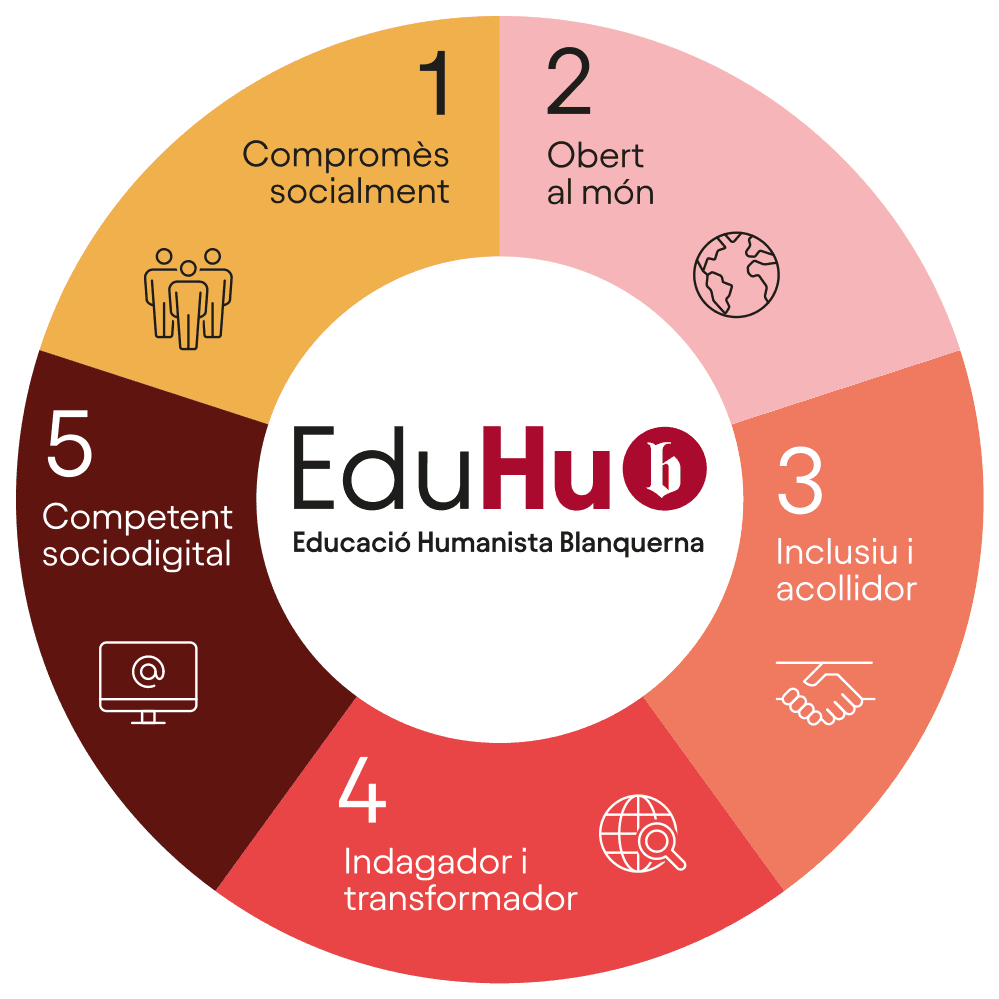
The Blanquerna methodology is based on seminars, a core element in achieving personalized and qualitative learning and holistic training that includes not only academic and professional competencies but also personal and human skills.
Seminars with small groups of 10-12 students facilitate interdisciplinary learning, intellectual and professional reflection, and customized learning. The faculty advisor collaborates in students' academic, personal and vocational orientation.
We have agreements with more than one thousand internship centers and a 95% job placement. Internships are carried out in pioneering and innovative organizations, institutions and schools that allow you to vindicate everything you have learned during the degree.
Studying abroad is a life-changing experience. We offer you the opportunity to take part in various exchange programs and international cooperation programs and to do internships abroad. Furthermore, the curriculum includes training to obtain B2 level English certification.
ApS (Learning and Service) is a complex activity that integrates service to the community with learning: one of the main ideas is that our students can learn by accompanying other social institutions and continue to grow in the acquisition of values and critical thinking. These are activities or projects in which learning is linked to performing a real service.
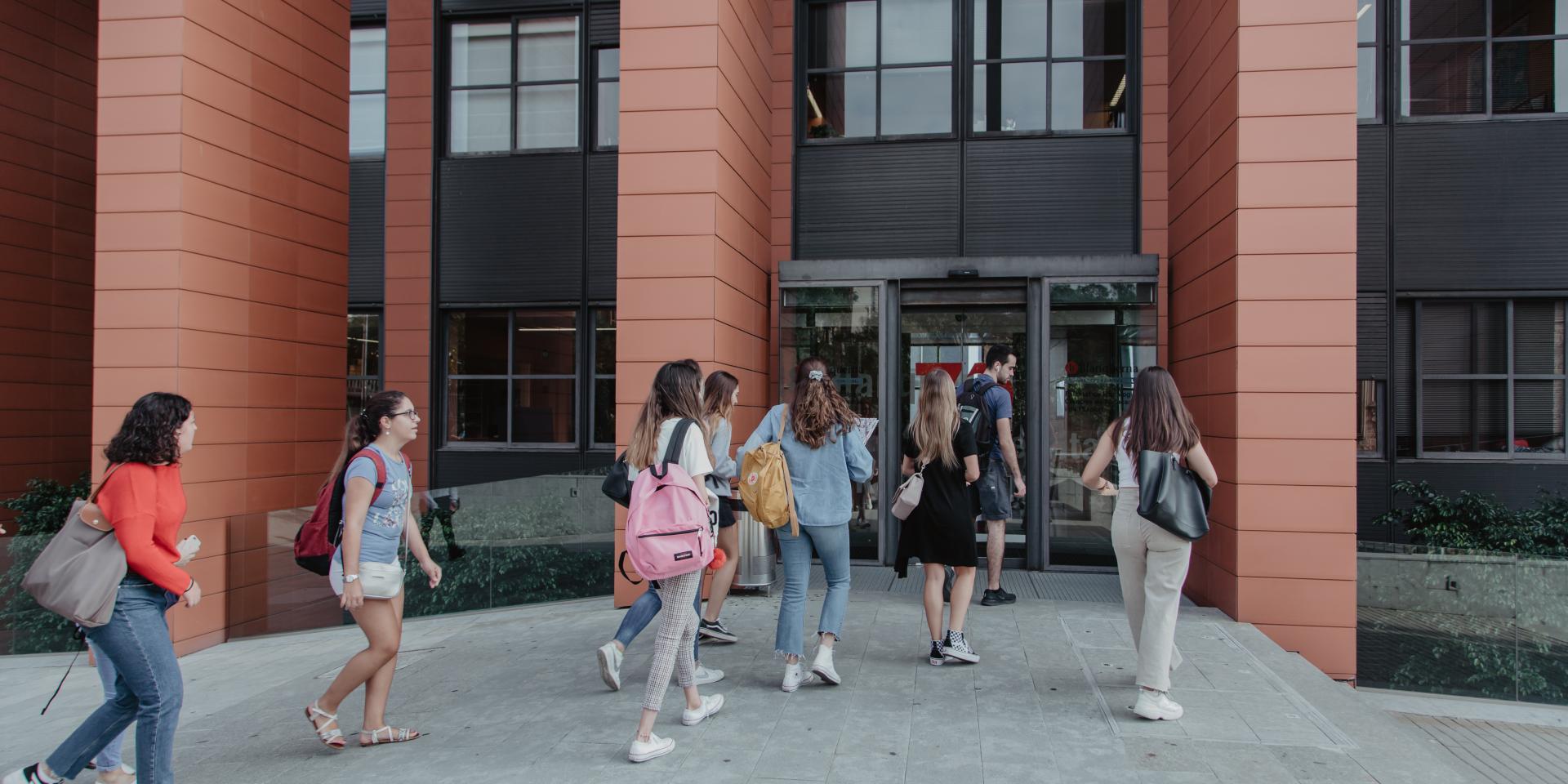
Study for two majors simultaneously, consecutively or following a track tailored to you

May 27, 2024

February 20, 2024
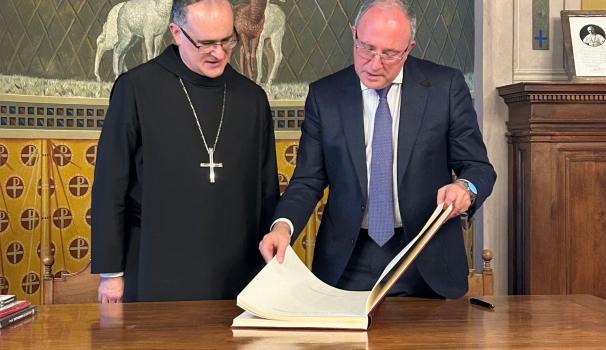
December 4, 2023
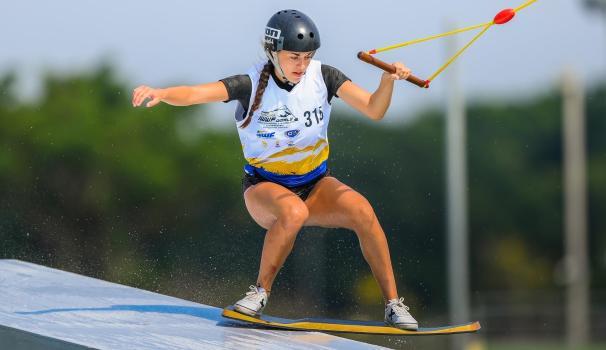
July 20, 2023
Our 4 + 1. This model is unique and exclusive to Blanquerna, as it allows graduates who have a first degree in Education to take up employment after four years and then obtain the second degree in just one academic year of evening classes.
This double degree can be started with either Early Childhood Education (+ 1 year of Primary Education) or Primary Education (+ 1 year of Early Childhood Education).
| Subject | Credits | Academic type | |
| First semester | |||
| Systematic observation and contextual analysis | 6 | Core curriculum | |
| The child from 0 to 6 years old: evolutionary characteristics and learning | 6 | Optional | |
| Teaching and learning of reading and writing | 6 | Compulsory | |
| The nursery school | 6 | Core curriculum | |
| Second semester | |||
| Education and health | 6 | Core curriculum | |
| Teaching materials and resources | 6 | Core curriculum | |
| Didactics of Mathematics in Early Childhood Education | 6 | Compulsory | |
| Didactics of the discovery of the environment | 6 | Compulsory | |
| Annual | |||
| Interdisciplinary artistic project | 10 | Compulsory | |
| Practicum II: the classroom and the center with the educational contexts | 14 | Practicum | |
| Final degree project: English | 12 | Final degree project |
| Subject | Credits | Academic type | |
| First semester | |||
| Didactics of the first language and literature | 6 | Compulsory | |
| The child from 6 to 12 years old: evolutionary characteristics and learning | 6 | Optional | |
| Didactics of knowledge and mathematical activity in Primary Education | 6 | Compulsory | |
| Teaching social sciences | 6 | Compulsory | |
| Second semester | |||
| Design of teaching materials and digital learning environments | 6 | Optional | |
| Teaching experimental sciences | 6 | Compulsory | |
| Didactics of the second and third languages and literature | 6 | Compulsory | |
| Problem solving and scientific thinking with technological resources: STEAM in primary | 6 | Optional | |
| Annual | |||
| Education through plastic arts, music and physical education: an interdisciplinary project | 10 | Compulsory | |
| Practicum II: the classroom and the center as educational contexts | 14 | Practicum | |
| Final degree project: English | 12 | Final degree project |
Course fees are paid in installments without any interest. At the time of enrollment, 50% of the total cost of the credits for which the student is enrolled must be paid*; the remaining 50% is split into nine monthly installments (from October to June) payable by direct debit.
The credit price of the second degree is according to the course of the subject.
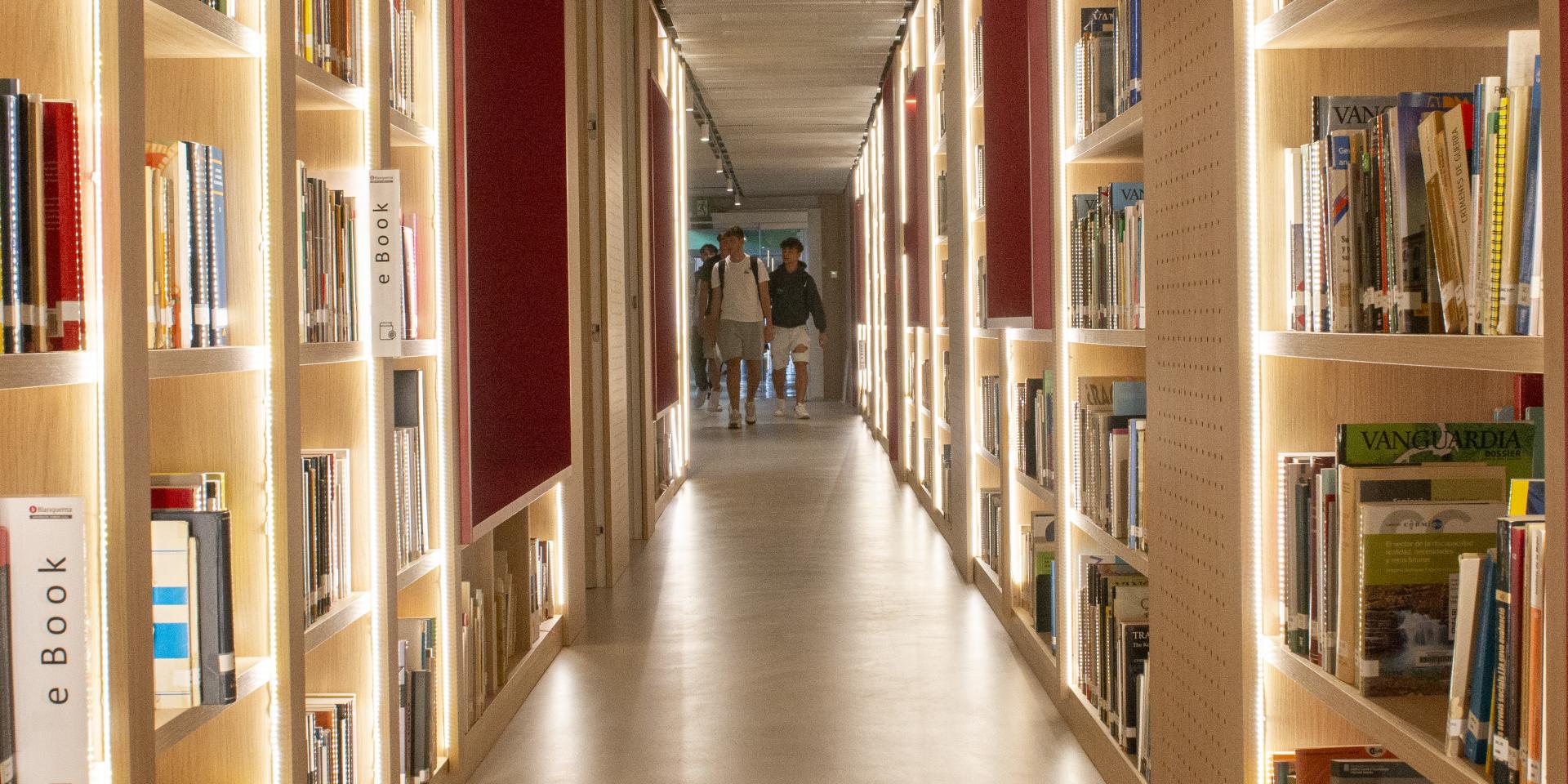
Fundació Blanquerna discounts (not cumulative with each other):
In order to apply the discount, you must prove it with the corresponding document. Students must bring the original document in person to the Academic Secretariat, together with their identification document, for validation and application of the corresponding discount.
The deadline for submitting the supporting documentation for the 2026-2027 academic year is September 30, 2026.
Music learning is an essential part of education. The School has 3 spaces dedicated exclusively to working in this field: two recording rooms and a dynamic classroom for working on movement and bodily expression.
In this classroom there are individual or group workshops to put into practice the knowledge of the visual and plastic subject. Here you will find various materials for carrying out projects of any format and work in two or three dimensions.
Do you want to improve your level of Catalan? Have you just arrived in Catalonia and don't know what to do? Are you studying English and want to reinforce your language skills? Learn at your own pace with the Language Service.
Here you will find the resources and professionals to help you achieve your goals.
If you need a quiet space to study or to do individual and group work, come to the library! Each school has its own library with computers, workrooms, reading points and an extensive catalog of documents you can consult in both hard copy and digital format.
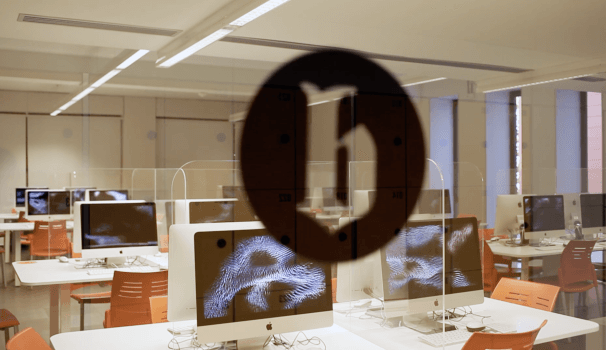
If you have a job or just need a computer, you can go to the computer classrooms or workspaces and use the Macs we have at your disposal.
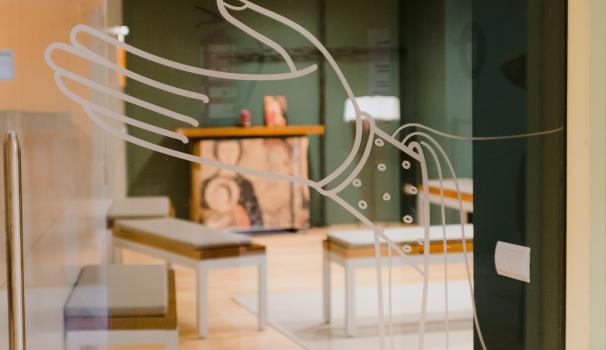
The chapel is the right place to find recollection, peace, to focus, to pray and to celebrate the Eucharist weekly and at important liturgical moments (Christmas, Ash Wednesday and Easter). The sacrament of reconciliation is also celebrated.

Ethics in the field of research is fundamental. The Faculty Research Institutes are supported by the opinions of the Research Ethics Committees (CER-URL) to evaluate and rate projects that have ethical implications.

The 2030 Agenda Office of the Blanquerna-URL School of Psychology, Education and Sport Sciences is a project designed to ensure the achievement of the Sustainable Development Goals (SDG) and the milestones set in the Agenda, based on the joint strategies of URL institutions.
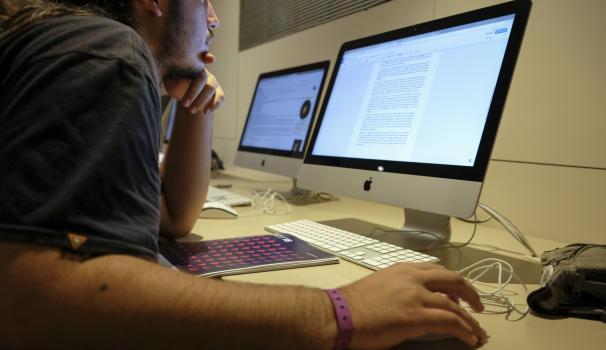
The SOPTIC (Pedagogical Guidance Service on Information and Communication Technologies) offers support in the use of ICT to both teachers and other faculty services.

Do you need guidance or support on your research project? The Methodological Advisory Service (SAM) offers you a series of procedures to guide you in your work process in the field of research.
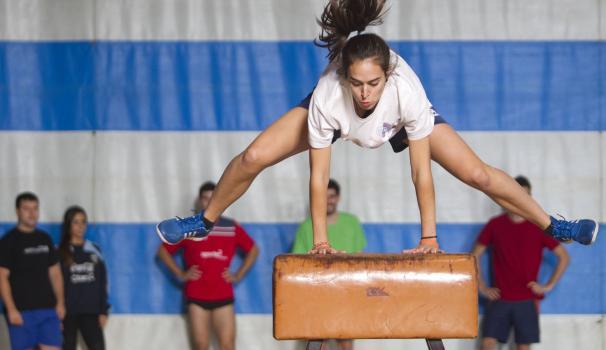
At Blanquerna we facilitate the incorporation and monitoring of the academic pace of all those people who are High Level athletes based on tutorials and personalized attention to study each case.
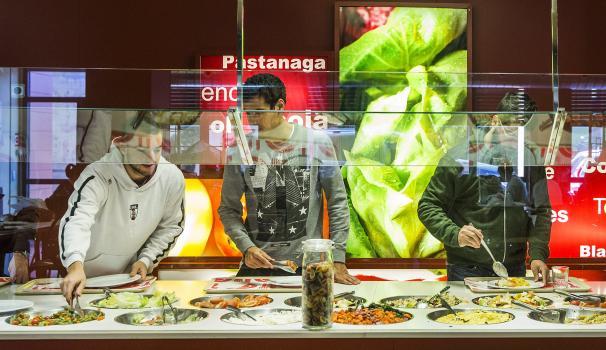
The nerve center of the quintessential faculties is the bar. There, teachers, students and staff meet throughout the day for breaks or meals.
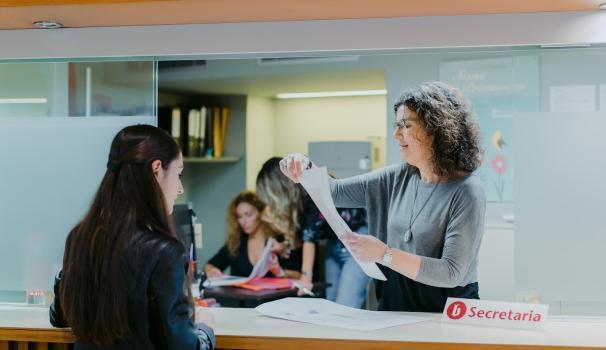
The Academic Secretaries of the Blanquerna faculties are the space for students to relate to the processes linked to the registration of official and own courses.

Would you like to receive information on pre-registration and admissions processes, scholarships and grants or validations? The SIOE is the service you need. Ask for all the information about any of these processes and discover all the possibilities at your fingertips.
Professional experience is a core part of our methodology. For this reason, we have a broad spectrum of internship agreements to meet the needs and preferences of all students. You will graduate having worked in your industry.

At Blanquerna, we put the future within everyone's reach thanks to our scholarships and grant service to start or continue studying at our schools. Financial aid is both internal and external to the university. You will find a wide range of possibilities.

Going abroad is a unique opportunity to discover the plurality of the world. Aware of the importance of the internationalization of studies, we have established mobility agreements around the world.
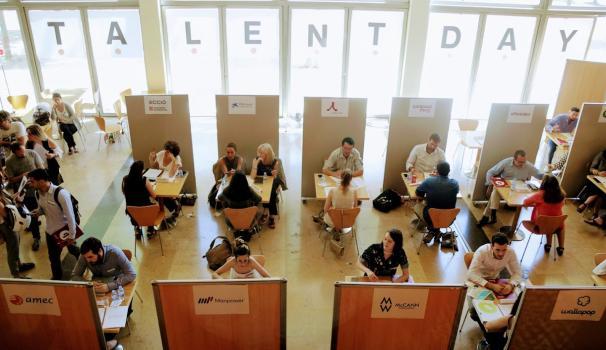
This service provides graduates with the necessary means so that they can actively participate in their professionalism and propose optimal candidates to organizations and companies looking for staff.

The leap into the world of work is always a challenge. For this reason, we provide a Job Bank for students and graduates. This service puts students in touch with companies and institutions looking for staff.
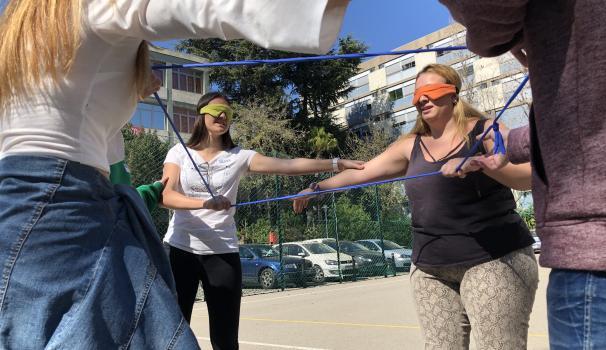
Solidarity and the struggle for human dignity are values that identify us. Solidarity Action is a volunteer program that our students can join to participate in projects in the Third and Fourth World.
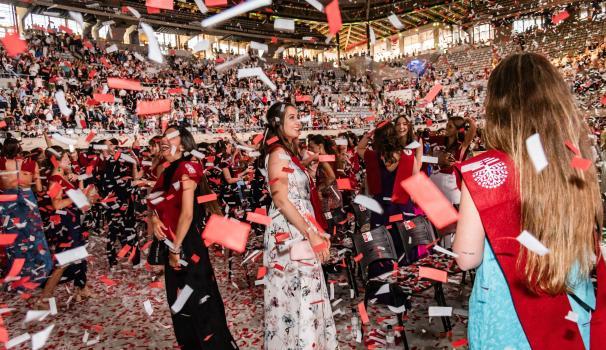
Studying in Blanquerna allows you to be part of our community. Being a college student opens the door to a lot of options for continuing your vocational training beyond your time in the classroom.
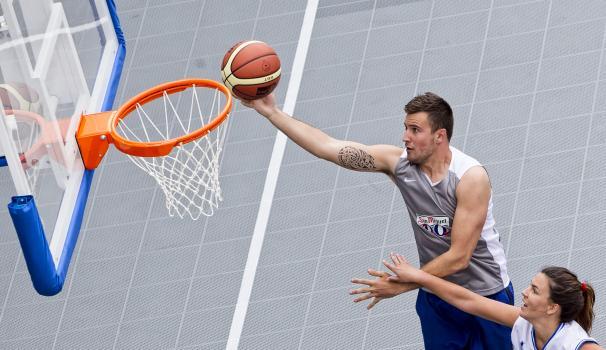
Want to represent the URL in college sports tournaments? You can find a wide range of possibilities for both individual and team sports. To be a student of Blanquerna, you will have a discount at the Can Caralleu and La Salle Sport & Fitness sports complexes.

If you are in a difficult situation in the academic, personal or social field, you can request, free of charge, the personalized attention of the SOP. This is an interdisciplinary team of professionals who will guide you in dealing with the situation.
In the three Blanquerna faculties, you will find spaces for reflection isolated from the hustle and bustle dedicated to the celebration of the Faith or cultural and religious animation. If you wish, you can also receive personalized attention and information about church life.
At Blanquerna we promote personal development at all levels to people with a diversity of specific needs from a normalizing context that encourages personal autonomy and uniqueness.
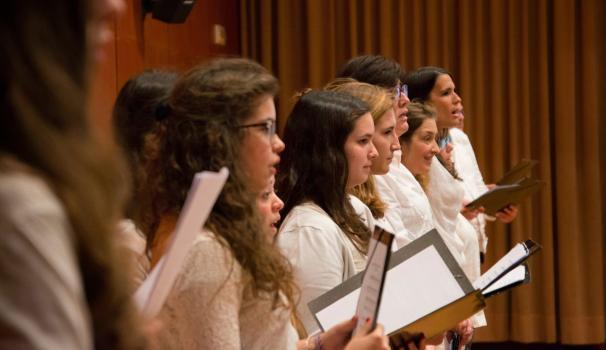
If you like music and want to take part in the concerts of institutional events and festivities, sign up for the Blanquerna Choir. There you will meet new friends and enjoy music.
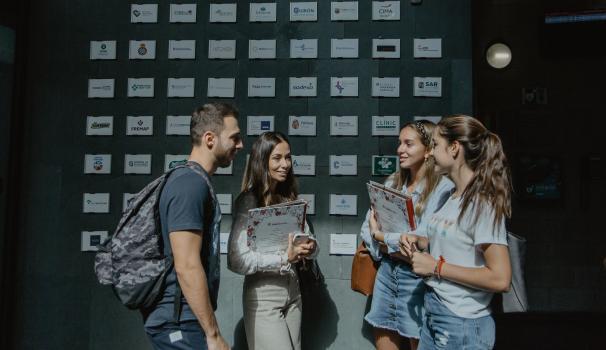
Each class group must elect a representative to put forward concerns or make proposals to the faculty members and academic management. At the same time, each degree must appoint a delegate and each school a representative on the general URL council.
Contact between students and the university is constant and is channeled through the Student Council, the body that collects proposals and requests from students and facilitates university life.

Are you studying a foreign language and want to improve your level? Do it at your own pace in the language self-learning classroom. This service offers various teaching resources and materials to practice the language.
Cristina Corcoll López
Marc Casanova Roca
Mireia Civís Zaragoza
Eva Martinez Tome
David Soler Ortinez
Caterina Sugranyes Ernest
Montserrat Alguacil De Nicolás
Francesc Xavier Àvila Morera
Berta Aznar Martínez
Anna Balcells Balcells
Josep Manel Ballarin Garoña
Roger Ballus Nuñez
Marina Bernardo Flórez
Alain G.F. Blomart
Elena Boadas Mir
Maria Carme Boqué Torremorell
William Andrew Bromberg
Marta Cabré Cunill
Dolors Camarasa Solé
Jesús Canelo Calle
Olga Canet Velez
Maribel Cano Ortiz
Reina Capdevila Sola
Gabriel Carrió Amat
Mercè Cols Catasus
Natalia Contreras Gonzalez
Marcela Sandra Costanzi
Maria Francesca Criach Singla
Anna Maria de Monserrat Vallve
Jorge Díaz Gibson
Marta Espinach Llavina
Maria del Mar Esteve Ràfols
Sara Figueras Comas
Maria del Carmen Flores Muxí
Carmina Folch Dàvila
Anna Isabel Fontanet Caparrós
Ester Forné Castaño
Marc Franco Sola
Romina Fraticelli Barri
Marina Garcia Morante
Àngels Geis Balagué
Laura González Sanvisens
Ana Eva Jarabo Fidalgo
Daniel Klamburg Figuerola
Margarida Llevadot González
Abel Martinez Mejias
Joana Mas Mestre
Maria Paula Mayoral Serrat
Antoni Miralpeix Bosch
Maria Antònia Miret Ferrer
Oriol Mora Romagosa
Àngel Jesús Navarro Guareño
Elena Sofia Ojando Pons
Ignasi Oró Badia
Anna Pagès Santacana
Imma Pallarés Gómez
Susana Pérez Testor
Goretti Pome Tarres
Montserrat Prat Moratonas
Miquel Àngel Prats Fernandez
Glòria Prats Rins
Miguel Angel Pulido Rodriguez
M Dolors Ribalta Alcalde
Francesc de Paula Riera Piferrer
Jordi Riera Romaní
Eva Rodriguez Garcia
Joan Josep Rodríguez Yañez
Helen Ruiz Laiseca
Ingrid Sala Bars
Mireia Sala Torrent
Eulàlia Anna Salvat Golobardes
David Simó Pinatella
Jordi Simón Llovet
Rosa Maria Soler Prat
Jordi Suñe Abello
Míriam Turró Amorós
Susana Tuset Munné
The application process for a place in the 2026-2027 academic year begins on October 29, 2025, and consists of three phases:
The application for a place can be made online or in person and entitles the applicant to participate in the admission process.
It can be done via the Application for admission button on the page for each degree, or directly from here, and requires:
It can be done at the School itself, by going to the Student Information and Guidance Service (SIOE), and the following must be submitted:
IMPORTANT - BACHELOR'S DEGREE IN PSYCHOLOGY AND BACHELOR'S DEGREE IN NURSING: Students from High School (Batxillerat):
If, at the time of submitting the application for a place in the degrees in Psychology or Nursing, as well as for simultaneous studies in either of these two degrees (e. g., Psychology and Speech and Language Therapy, or Nursing and Nutrition), the final High School and PAU (University Entrance Exams) grades are already available and are equal to or higher than 7, the applicant will be called to enroll once admitted.
If the final entrance grades for High School and PAU (University Entrance Exams) are not available, an official certificate from the educational center must be attached, containing the average grade for the first year or the final High School grade. Once this certificate is submitted, there are two options:
Option 1. If the grade is equal to or higher than 7, the student will be called to make a conditional enrollment and may choose a shift while places are available.
Option 2. If the grade is lower than 7, the student may participate in the June place allocation, which will be based on the submitted grade as the first criterion and the date of payment of the place application as the second criterion. From the date on which the final grade of the university entrance exams becomes available, if there are still places available, only students who have submitted the certificate with their final admission grade will take part in the allocation process.
Note: In the case of students from international high schools, an official document from the school of origin must be submitted with the final average grade for the course and its equivalence to the Spanish system.
IMPORTANT - BACHELOR'S DEGREE IN PSYCHOLOGY AND BACHELOR'S DEGREE IN NURSING: Students from Higher-Level Vocational Training (CFGS):
If, at the time of submitting the application for a place in the degrees in Psychology or Nursing, as well as for simultaneous studies in either of these two degrees (e. g., Psychology and Speech and Language Therapy, or Nursing and Nutrition), the final CFGS grade is already available and is equal to or higher than 8, the applicant will be called to enroll once admitted.
If the entrance grade (neither provisional nor final) for CFGS is not available, applications for a place in the aforementioned studies can be formalized, and the student will participate in the June place allocation, which will be based on the final grade submitted via an official certificate from the educational center containing the final average grade of the qualification. The grade mentioned will be considered as the first criterion, and the date of payment of the place application as the second criterion. For the Bachelor's Degree in Psychology, 10% of places will be reserved for students from this pathway. For the Bachelor's Degree in Nursing, 30% of places will be reserved for students from this pathway.
IMPORTANT – DEGREE IN PSYCHOLOGY AND DEGREE IN NURSING: Students coming from previously started university studies:
If, at the time of applying for a place in the Psychology or Nursing degree programs, as well as for any double degree involving either of these programs (e.g., Psychology and Speech Therapy or Nursing and Nutrition), the applicant has already begun university studies, they must contact the Faculty’s Student Information and Guidance Service.
Approximately within two working days after the place application, the student will be informed by email about their admission. If admitted, the same message will invite them to formalize enrollment, including instructions on when and how to complete the procedure.
The criterion used to call admitted students to formalize enrollment will be the order of payment of the place application. For degrees with more than one shift, note that a shift may fill up during the enrollment period. The place will be definitive once the student has submitted the documentation with the final university entrance information and the first enrollment payment has been made.
For degrees taught in English, students must demonstrate a minimum B2 level of English to be admitted. The level can be accredited through the level test that all degree students must take before starting their program. To prove the minimum level, an official language certificate of B2 or higher can also be submitted: IELTS (6-7), TOEFL (IBT 90-110), CAMBRIDGE, or Official Language Schools, obtained within the last two years. Certificates from other organizations will not be accepted. The certificate does not exempt students from taking the level test to determine the English level for the first year.
It is the student's responsibility to have a level equivalent to B2 in the language of instruction of the degree to properly follow classes
The student called to enroll may choose between two options, depending on whether they already have the definitive entrance pathway or not.
Enrollment in the degree can be formalized before passing the PAU (University Entrance Exams) or CFGS or having the entrance pathway. Enrollment will be conditional on the presentation of the corresponding admission pathway. This option secures the place and allows choosing the shift, in the case of degrees with more than one shift, while places are available.
If the student does not obtain the entrance pathway, the enrollment fee will be refunded, but they will lose the place, preference in shift selection, and the amount paid for the place application (€50). If places remain available in July, they may choose to stay on the waiting list until September, and the money will be held, but they will no longer have preference for shift selection. If they do not obtain the entrance pathway by September, the enrollment fee paid will be refunded.
It will be formalized if, at the time of processing the enrollment, the student already has the university entrance pathway. They may opt for the available places and shifts.
IMPORTANT: Degrees with more than one shift may exhaust places in a specific schedule with conditional enrollment. The required documentation must be uploaded via the Document Repository.
The place will be definitive once the student has submitted the documentation with the final university entrance information and the first enrollment payment has been made.
NOTE: Students in the Communication Degrees must take an English level test that will not be exclusionary for admission but will determine the level at which they start the first year. Each student will be informed of the test date and time by email.
Studies can be paid upfront and/or in interest-free installments. If payment by installment is selected, upon enrollment the student will have two business days to pay 50% of the total cost of the enrolled credits, using their chosen form of payment; this payment will not be taken by direct debit. The remaining 50% will be divided into nine monthly payments from October to June via bank direct debit from the account provided at the time of enrollment. Prices for each academic year are updated annually.
Once payment is made, the corresponding receipt of enrollment can be viewed in the student's Document Repository and via the student's portal.
For the foreign student admission process, the following considerations and requirements must be taken into account in accordance with the prevailing regulations.
Students must apply to the Universidad Nacional de Educación a Distancia (UNED) to obtain the credential certifying that they meet the requirements to access university studies within the state education system (UNED Credential). Therefore, they do not need to take the PAU (University Entrance Exams), but without the mentioned credential, they cannot enroll in our degrees.
The education systems that can be accessed through this pathway are: Germany, Andorra, Austria, European Schools (European baccalaureate), International Baccalaureate, Belgium, Bulgaria, Croatia, Denmark, Slovakia, Slovenia, Estonia, Finland, France, Greece, Hungary, Ireland, Iceland, Italy, Latvia, Liechtenstein, Lithuania, Luxembourg, Malta, Norway, the Netherlands, Poland, Portugal, the United Kingdom, the Czech Republic, Romania, Sweden, Switzerland, China and Cyprus.
These students may access our degrees by submitting the homologation of the High School diploma from the Spanish Ministry of Education or from the autonomous communities with transferred competence, such as the Generalitat de Catalunya. Proof of application for convalidation will be sufficient for students to enroll and begin taking a bachelor's degree course, however full enrollment is conditional on convalidation being confirmed. Bear in mind that convalidating studies can take more than three months to complete, so this process should be done in parallel with the admissions process to our bachelor's degrees. If the convalidation resolution is not obtained in the terms requested by the interested party, the results of any exams taken, or the enrollment made as a result thereof, are rendered null and void.
For any questions or inquiries about the place application or enrollment process, contact [email protected]
Find the help that best suits your needs between Blanquerna scholarships and grants, public and private grants or funding grants.
Blanquerna-URL is waiting for you!
As the European Union points out, gender equality is not only a matter of social justice but also affects the results of teaching and research. Promoting gender equality in research and innovation is one of the European Commission's commitments, and it supports the explicit integration of a gender perspective in Horizon 2020 projects. However, this recommendation is often poorly understood and misapplied. Various documents are presented here with a view to contributing to a better understanding and application of the gender perspective in teaching and research.
RELATED PROGRAMS
We equip you for change
